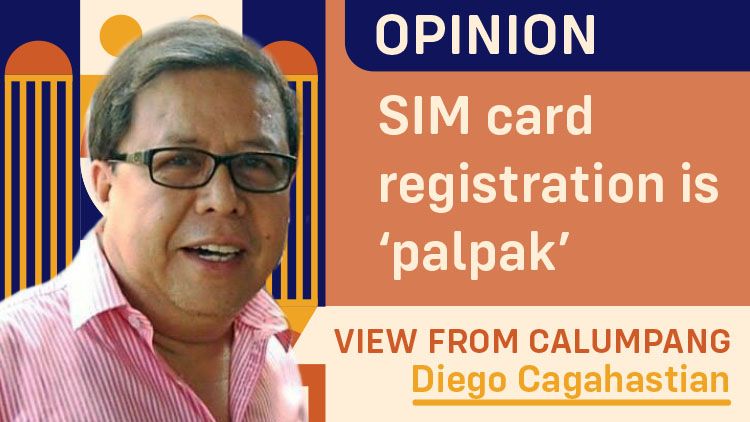FROM our viewing deck here in Calumpang, we can easily surmise that people are disappointed—angry even—on the way the government is implementing the SIM Card Registration Act.
Hundreds of SIM cards and cellphones were discovered by the raiding team of the PAOCC inside the illegal POGO compound in Bamban, Tarlac. And thousands more in a similar facility in Porac, Pampanga.
The various financial scams, love scams and other criminal activities are continuing despite the passage of the SIM Card law and its implementation by the government.
Recently, Sen. Sherwin Gatchalian criticized the National Telecommunications Commission (NTC) for failing to enforce the SIM Registration Law, blaming this lapse for the increase in scam activities linked to Philippine offshore gaming operators (POGOs).
This came after a series of operations over the past few months led to the seizure of subscriber identity module (SIM) cards from raided POGO hubs.
“The goal of this legislation is to provide accountability for those using SIM cards and to support law enforcement in tracking perpetrators of crimes committed through phones. But because the NTC has apparently forgotten its responsibility, scammers in the POGO industry continue to use SIM cards unabatedly,” said Gatchalian.
He pointed out that during the raids on Smartweb Technology Corp. in Pasay, Zun Yuan Technology in Bamban, Tarlac, and Lucky South 99 in Porac, Pampanga, authorities found SIM cards being utilized for fraudulent activities, including love scams, cryptocurrency scams, and other investment scams.
Gatchalian was among the co-authors of the SIM Registration Law.
“SIM registration is an important tool in combating online crimes that make use of a phone. The NTC should stop sleeping on its job so we can realize this goal,” added Gatchalian, who’s also pushing for the total ban of POGOs.
The SIM Registration Law was the very first legislation signed by Pres. Bongbong Marcos Jr. in hopes of curbing the use of SIM cards in illicit schemes.
However, since its enactment in October 2022, scams have reportedly increased.
Last April, Sen. Koko Pimentel III called for amending the SIM Registration Law due to its “loopholes” and the resurgence of scams.
The passage of the measure was heavily opposed by several groups, citing data privacy concerns. They also posited that it would be a weak deterrent to online crimes.
Meanwhile, the Junk SIM Registration Network, an alliance of digital experts, privacy advocates and consumers, staged a protest outside the National Telecommunications Commission (NTC) office in Quezon City to call for repeal of the Republic Act 11934 or the SIM Registration Act.
“It’s not enough to say that the SIM Registration Law is ineffective against scams: the law actually strengthens scammers,” said Jenna Rodriguez, the group’s media officer.
“Despite its goal to reduce mobile-related scams, the law has instead helped its spread. Recent raids on Philippine offshore gaming operators (POGO) found bulks of falsely registered SIM cards used in various scams, including love scams, cryptocurrency scams and investment scams,” she added.
Rodriguez said SIM registration enabled scammers to hide their real identities, noting that no scammer has been arrested for violating the law.
She said their group urged “the government (to) focus on strengthening data privacy measures to protect the people’s private information.”
She also raised privacy issues, given that personal data of all Filipinos who own SIM cards are now stored in a database, which may be hacked or illegally accessed.
This corner hopes that our representatives, senators and President Bongbong are listening to their plight.
#WeTakeAStand #OpinYon #OpinYonColumn #ColumnbyDiegoCagahastian #ViewfromCalumpang
